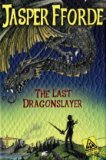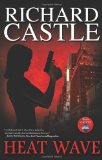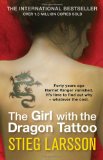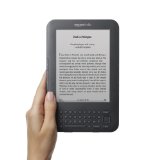Holiday Reading
Thanks for all the suggestions on which eBooks I should read on holiday. I didn't get through as many as I would have liked (crappy flights and too many pre-lunch cocktails!) - but here's what I did read and what I thought of them.
Anathem
 Neal Stephenson's Anathem
Neal Stephenson's Anathem
By rights, I should have loved this book. But I didn't. I couldn't even get 5% of the way through. Perhaps it was the deliberate use of overcomplicated language, or perhaps because it feels like it's an n-th generation copy of A Canticle for Leibowitz
- I just couldn't get in to it. There are obviously some fascinating ideas in there, but I feel that Stephenson has gone for "Epic Tome" where a judicial use of the red pen would make it far more readable.
Seeing Further
 Bill Bryson's Seeing Further: The Story of Science, Discovery, and the Genius of the Royal Society
Bill Bryson's Seeing Further: The Story of Science, Discovery, and the Genius of the Royal Society
The essays contained within range between frighteningly good (Richard Dawkins on evolution) and mawkishly unfathomable (Margaret Wertheim who seems to think that because there might be an eleventh dimension, that means the Bible is literally true.... WTF?).
The essays are, on the whole, entertaining and informative - but they do stray quite wildly from the subject of the Royal Society.
After being so cruel to Neal Stephenson, I should say that his essay on Leibniz and Newton is deliciously good - and it reveals much of the historical background to Stephenson's Baroque Cycle.
The Last Dragon Slayer
 Jasper Fforde's The Last Dragonslayer
Jasper Fforde's The Last Dragonslayer
I think that Jasper Fforde is the most original fiction writer. If you've never read a Jasper Fforde book before - The Last Dragon Slayer is amazing.
If, however, you've already devoured all the Thursday Next books - this will give you an odd sense of deja-vu.
- Young, tenacious, female protagonist? Check!
- Mysterious animal companion who can only say one word? Check!
- Mega-corporations with comedy product names? Check!
- TV Chat Show hosts with sinister motivations? Check!
You get the picture. The only thing missing is the copious footnotes*. That said, it is a great story, set in a subtly complex world. The characters, pacing, jokes and denouement are all satisfyingly entertaining. Much like Terry Pratchett a few years ago, it's a little too "Jasper Fforde By Numbers". Certainly worth reading.
As has been pointed out - Dragon Slayer is meant to be a children's book. Personally, I don't think there's anything in this book which makes it suitable only for children. Also worth noting, Dragon Slayer doesn't have the usual array of special features and web content that I associate with Fforde's other work. There is a webpage with some enhanced content.
*Although that may be a repeat of the missing footnote problem which struck First Among Sequels.
Heat Wave
 Richard Castle's Heat Wave
Richard Castle's Heat Wave
This is a fantastic holiday read - if you're a fan of the TV series "Castle". The show has Nathan Fillion playing crime-writer Rick Castle. Stuck for ideas, he tags along with detective Kate Becket and writes a book loosely based on their crime-fighting capers.
So, this isn't the novelization of the series; it's the fictional writer's fictionalised book based on fictional events. Confused?
The whodunnit aspect of the book isn't fantastic - it reads like a rejected mid-season story - but you don't get the book for that. You buy it for the outrageous levels of fan-service it bestows upon the viewer/reader.
Even the dedication has an in-joke:
To the extraordiany KB and all my friends at the 12th
A superb tie-in - although not as challenging a crime novel as, say, Jeffery Deaver. Many thanks to Miss Geeky for bringing the book to my attention earlier this year.
The Fry Chronicles
 Stephen Fry's The Fry Chronicles
Stephen Fry's The Fry Chronicles
The follow-up to his previous autobiography, Moab Is My Washpot
. Stephen Fry has an almost painfully self-conscious way of describing event - often engaging in a meta-analysis of his own thoughts and feelings. This only covers a fraction of his life - from entering university to starting to become famous - yet it is a fulsome read. It concludes with a shameless cliffhanger for his next autobiography - let's hope we don't have to wait 13 years for the next one.
Life
 Life: Keith Richards
Life: Keith Richards
It seems that half the people on the beach were reading Keith Richard's autobiography. I'm not a massive fan of the Rolling Stones and only read this on the recommendation of Martin Glassborow. I was glad I did - it was an engaging and witty read. Completely different in almost every respect from Stephen Fry's autobiography although, bizarrely, dealing with exactly the same themes - love, sex, growing up, becoming famous, and drug abuse. There are a few passages which deal with the intricacies of guitar playing which I skipped over - and some of the discussions about the songs and riffs he wrote are almost meaningless unless you're very well versed in the Stones. Other than that, it's a highly recommended book - and works wonderfully as a companion piece to Fry's.
World War Z
 Max Brooks' World War Z
Max Brooks' World War Z
(As recommended by Peter Ibbotson)
What a joyously bit of post-apocalyptic sci-fi. Told in a retrospective documentary style - much like Day of the Triffids. Fast, fun, and utterly believable. The perfect holiday read.
Girl With The Dragon Tattoo
 The Girl with the Dragon Tattoo
The Girl with the Dragon Tattoo
Stieg Larsson's books litter the world's beaches as they are rapidly devoured. I was left moderately underwhelmed. I was about 2/3rds of the way through the book before I got on the plane home - and didn't feel a compelling need to open it once seated.
It's all told in a rather plodding style. I have a half-baked theory that books popular with women tend to concentrate on the little environmental details - the shoes, the food, the crunchiness of the gravel underfoot - Larsson makes this almost a fetish; faithfully recounting the exact number of degrees the thermometer reads and the number of the bus his protagonist jumps on at one point. One nice touch is that his knowledge of computers is broadly accurate - a nice change from the Dan Brown school of writing.
The central mystery takes an age to be revealed - it's only 50% through the book that you get any idea of what's happening. There's a lot of build-up around not too much story. I'll finish it, but unless the last third is dramatically different to the rest of the book, I struggle to see why the series has become so popular.
Amazon Kindle
 A special mention to the Amazon Kindle
A special mention to the Amazon Kindle. It's hugely liberating to be able to pack a suitcase and not worry about whether the books will take you over your luggage allowance - or if you haven't packed enough to read. The free 3G was also useful in completing online check-in for the flights home - and reading the occasional weather report.
While the Kindle is amazing for reading books, it is atrociously bad as a library keeper. There's no way to easily organise books into folders, you can't search by the title of the book you're looking for, and with over a thousand books on the device there is a noticeable slowdown in sorting and searching.
The Kindle versions of some books are still more expensive than the hardback versions - utterly unacceptable. There's also no way to lend books to non-Kindle owners. As my wife has an Elonex 511EB, it was easier for be to get the books from stores other than Amazon and convert them for use on the Kindle.
I've no doubt that Amazon will adopt the ePub standard in the next 18 months - until then readers will be stuck in the same situation we were in in when iTunes only sold music in Apple's proprietary format. Plus ça change...
2 thoughts on “Holiday Reading”